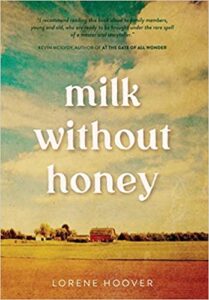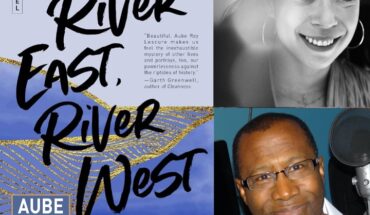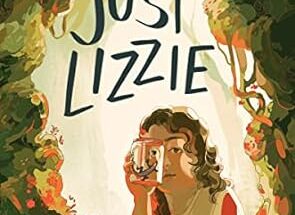 “My mother did not move from the bungalow’s doorway. Her apron, stained with baby burp and breakfast grease, seemed to pull down at her narrow shoulders. She brushed a dark sheaf of hair away from her face and boosted my baby sister higher in her arms. ‘Dan tried.’ ”—Ruth Ann in Lorene Hoover’s Milk Without Honey
“My mother did not move from the bungalow’s doorway. Her apron, stained with baby burp and breakfast grease, seemed to pull down at her narrow shoulders. She brushed a dark sheaf of hair away from her face and boosted my baby sister higher in her arms. ‘Dan tried.’ ”—Ruth Ann in Lorene Hoover’s Milk Without Honey
In Milk Without Honey, Lorene’s Hoover’s semi-autobiographical novel, young Ruth Ann tells the story of her mother’s struggle to build a life for herself and her family during the Great Depression.
Gregory Brown calls it a “heartfelt portrait of the weight of love, the ravages of the Great Depression, and the peculiar loneliness of childhood.” Randy Susan Meyers recommends it “with the same proselytizing vigor I previously reserved for my all-time favorite: A Tree Grows in Brooklyn,” and Kevin McIlvoy says, Milk Without Honey “calls to mind the best qualities in Charles Dickens and Willa Cather.”
Edited and self-published by Lorene’s daughter, Michelle Hoover, author of The Quickening and Bottomland, and esteemed instructor of Grub Street’s Novel Incubator program, Milk Without Honey is a debut for Lorene, now in her early 90s, and an homage to her own mother.
Pam Loring: First off, congratulations to your mom! She must be thrilled. The writing evoked a stoicism and humility that reminded me of Willa Cather and Kent Haruf. Maybe it’s a Midwestern sensibility? The language is spare, poetic, and straightforward, and the author seems to step back and let the story unfold through the innocent eyes of a young girl.
Michelle Hoover: It feels distinctly midwestern to me. There’s an inherent humility in the work. And most midwesterners I meet, writers included, suffer the same disease I do: an inability to take credit for anything good. I’ve noticed myself, sometimes, listening to people speak, and thinking, “Wow, she’s really showing up for herself! I wish I could be more like that!” It’s funny—the older I get, the more aware I become of how similar my mom and I are. And yet, I think she’s able to achieve something special in the book, something I can’t do. I’m not sure I can describe what it is exactly, but there’s a lack of ego or something similar in the book that I aspire to.
PL: That sounds like you being your humble self. Is your mom aware of the accolades her book is getting?
MH: I’m not sure. Last year, my mother was diagnosed with CCL again, a chronic kind of cancer she’s dealt with before and is highly treatable, except the choices in treatments for a 90-year-old are slim. The chemo pill they put her on took a toll. She basically lost two months of her memory. And then last fall, my husband got a job overseas and I knew we’d soon be leaving the country. So I drove from Boston to Iowa to see her, to do what I could. Driving away from her was one of the most difficult moments of my life. I wasn’t sure I would ever see her again. I called my husband, listened to audiobooks, did everything I could to fill my head and not think about it so I could just stay on the road.
Overall, though, I knew I had to publish her book. After I left the country, she started falling. She fractured a bone in her back, broke her wrist and fractured another bone in her back, then broke her hip. My siblings had to move her from the townhouse where she was living independently into a special health care unit, and of course she was terribly isolated there. No one was allowed to see her because of the virus. From afar, I held onto the idea of getting the book out, making it as beautiful as I could. It was the one thing I could do. I just imagined her holding her book in her hands, seeing her name in print, realizing what she’d accomplished. I wasn’t sure how much time she had left, and when she started falling, I went into a sprint on the project. I had to get it done before it was too late.
PL: What a wonderful gift to give her.
MH: I was doing the easy work, the part that everyone sees. My brother and sister deserve the real appreciation. They drove between Colorado to Iowa countless times to pack up her townhouse and get her safely moved. They did the hard work, the kind that never gets recognized enough. I’m so grateful to them.
PL: Wow, how thoughtful of you to see and say that. The behind-the-scenes work so often goes unnoticed. But only you could do this part of the process. How difficult was it to separate your own voice from your mother’s in the editorial process? Did you edit heavily?
MH: Part of what made it challenging was how many versions she had of the different chapters—at least four or five versions of each—both printed out and on these ancient memory sticks. I couldn’t tell which version was the most recent. I had to go through all of it before I could even begin editing. The most difficult part was choosing between the versions that were my favorite and the ones I suspected would be hers—all without the benefit of being able to ask her. It’s not that I didn’t try, but I just confused her more, her memory as bad as it was. So I had to go on faith. After editing it, I was then so nervous of leaving any mistakes in the text, I kept reading it over and over. Finally my husband said I just had to let it go, let it be what it was.
PL: How autobiographical is Milk Without Honey?
MH: Well, my grandmother left home with five children, not four. A few other elements in the book were combined or somewhat altered, but for the most part, the book is based on true events. I’ve always been proud of my grandmother for leaving a bad situation with her husband, my grandfather, and setting out on her own to start a rooming house. What gumption, what bravery she had—leaving home with five kids in tow! Had she tried to do it any other time, I think she would have been a success. But during the Depression? She didn’t have a chance. When she came back to him, she and my grandfather moved so many times, never really settling down, that I think she still yearned for a stable home, a place where she had some control. It makes me sad to think about. My great-grandmother, her mother, was very stern. But I knew my grandmother to be a rather meek and quiet person, becoming most herself when she played the piano. Later, after my grandfather died and she’d finally had a house of her own for several years, she filled that place to the brim. When she grew too old to live alone, the family moved her to an apartment. She died not long after, at the age of 92. She’d raised five amazing children: two of whom flew fighter planes in WWII. All of her children survived and thrived. This was her legacy. But for me, her courage during a terrible time was her legacy too.
PL: In spite of all the inroads made since by generations of feminists, the plight of women hasn’t changed that drastically. Like your grandmother, women are still struggling, paying more, making less, working more, carrying the mental load of their families, doing the bulk of domestic work, and paying the price.
MH: Absolutely. And in publishing, even though a greater percentage of women are readers, it’s the male writers who receive all the awards. There’s such age-ism in the industry. It’s especially difficult for an older writer to be published, but even more so for women of a certain age. That’s part of what makes the Grub Street Novel Incubator program so important. I want to make sure that our program helps everyone who has the drive and talent to thrive in what is otherwise a tough industry—or at least help as many writers as we can. The Novel Incubator’s first published writer was E.B. Moore—she got a two-book deal at the age of 72. That was a huge triumph for us.
I still believe in traditional publishing overall. It allows writers to be writers, not publicists and marketers fighting for attention, though of course traditionally published writers have to do that now too, but not as much. Self-publishing is not for the faint of heart. It’s extraordinarily expensive for one thing. There are a lot of people making money on self-publishing, and the majority of them aren’t the authors but the self-publishing industry that feeds off them. There is so much work to do, too: not just writing the book but editing, design, production. And that’s just getting the book out there as a physical object. Getting people to read it is its own can of worms. And the expense includes things you wouldn’t think about. Because I wanted her book to be hardcover, I had to charge $25 a book. The book costs $14 to produce but you need to add 55% on the price so that online retailers and bookstores can make the profit they need to sell it. Our dear bookstores do have to pay rent and employees! But the biggest expenses are in returns. If anyone returns the book, I still have to have pay the $14 to get it produced. Sure, you can have it returned to your home and try to sell it again, but that’s hard (and impossible if you’re living out of the country). It’s a huge financial risk.
PL: Well, hopefully there’s little chance of returns—your mom’s book is beautiful. I couldn’t put it down. How is your mom doing? Is she aware how well received her book has been?
MH: I’m relieved to say that her health is much better. She knows the book is out there. She’s reread it many times herself. We’ve swamped her senior living facility with copies, so the residents and staff are able to offer her their congrats and love of the book. But because she hasn’t been able to participate in a public event—she wasn’t well enough to do the live Zoom launch with us—she hasn’t gotten the full experience. I’m hoping she continues to improve and we can do something for her in the future, with a big crowd.
PL: Is there any way the Grub Street community can help with that?
MH: I would be so appreciative if anyone who has read the book and likes it could go on Goodreads or Amazon or wherever and leave a positive review. Or talk it up! Tell other people about it. We’re not trying to make money on it, just have it read. But sales help with that too. Otherwise, booksellers can’t really afford to pay much attention to it. I published the book through Ingram Spark, Ingram being a premiere book distributor, so you can buy it anywhere: your local indie, online, wherever. (Local indies first!) That would mean so much to me, and I think my mother would really appreciate seeing people’s experience of the book. It would help her realize what she’s accomplished, to really feel it. I’m hoping to put together a reading for her sometime this next year, so stay tuned.
PL: Lastly, what are you working on now?
MH: I’m doing the most ridiculous thing: I’m working on three books at once. There was something about the concentrated time alone during the pandemic that meant I needed to split my creative self in a number of directions. The books are all very different. One is about two elderly agoraphobic sisters who discover that someone might be living in their house. It’s a crazy, funny book and has all sorts of Shirley Jackson vibes. Another takes the point of view of a Boston MFA guard who is on scene when Sargent’s famous The Daughters of Edward Darley Boit is attacked with a knife. It’s a contemporary and historical mix, following the crime but the strange history of the painting too. And finally I’m writing a book that takes place in Cyprus, where I’m currently living. That one bends toward auto-fic, which I’ve never even come close to doing before. I like all three of them equally and hope I’ll be able to see them through.




2 comments